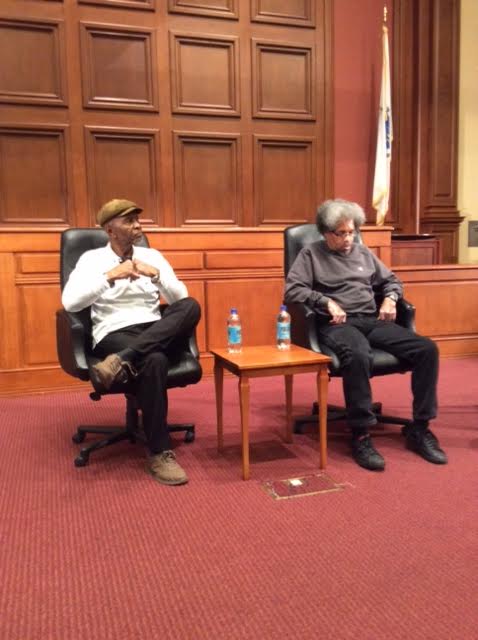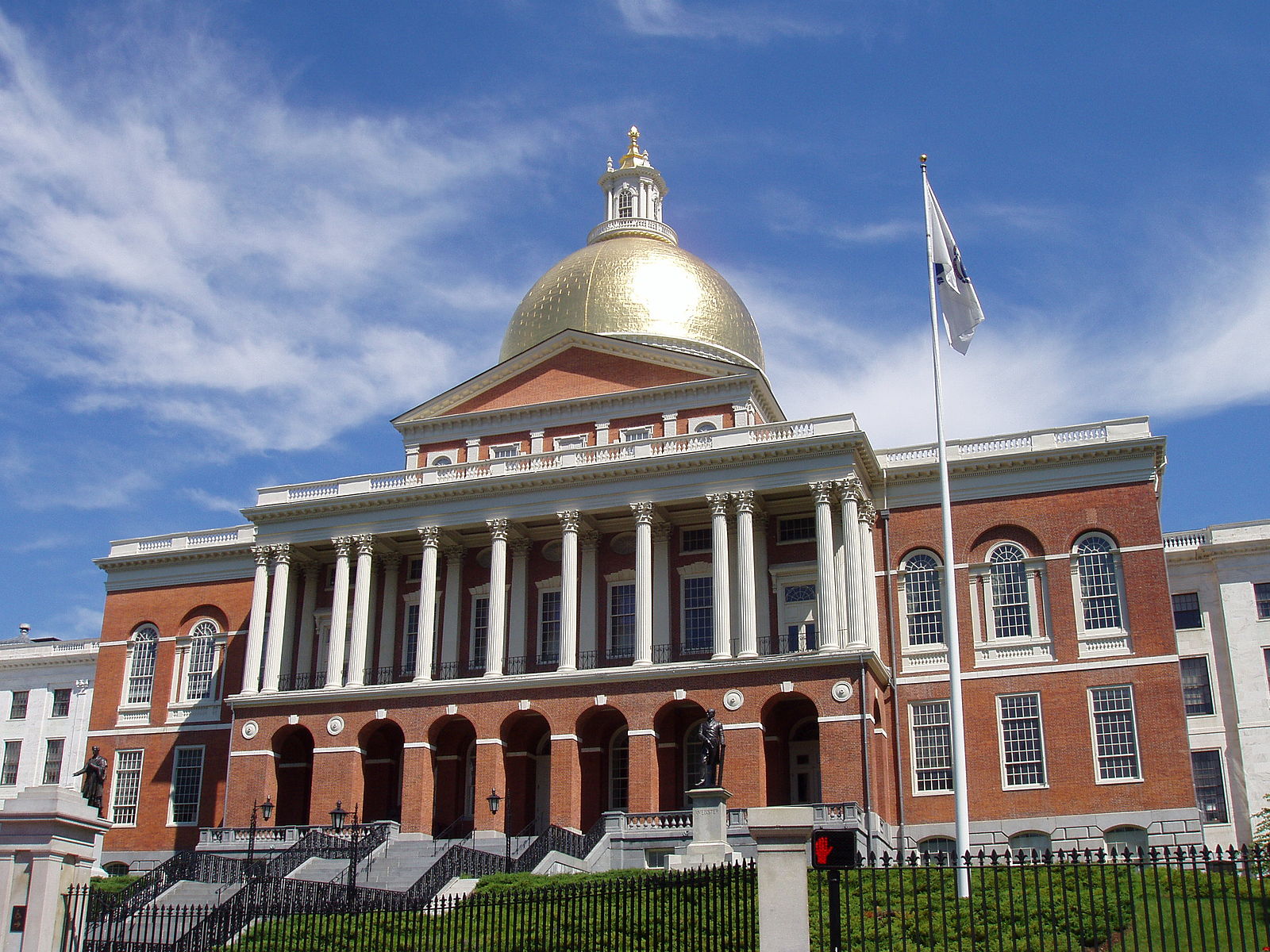
Photo Credit: LinkedIN
If you’ve been following the fiasco that was the Council of State Governments’ (CSG) attempt to make justice recommendations to Massachusetts leaders, hold on to your hats.
By now you probably know that the result of CSG’s several month stay in the Commonwealth (including a 25 member task force, numerous interviews, fact-checking, data collecting, and expert consultation) was a measly bill filed by the Governor. The ridiculously underwhelming bill claims to curb recidivism, save money, and increase public safety, all noble goals. But frankly, it misses the mark, merely adding some post-release supervision and programming to give prisoners more “good time,” i.e. days off their sentence. Even if these are good ideas, they only tweak what happens after someone goes to prison while ignoring the decision to send them there—and for how long—in the first place.
The bill is symptomatic of much that’s wrong with the Massachusetts justice system which is peopled by many with “good intentions.” Not only is it couched in “progress” and “change” rhetoric without being much of either, it ignores a number of major issues that the public knows are problems—racial inequities in justice practices, the system of bail, mandatory minimums, keeping juveniles out the system, incarceration instead of treatment for drug users, solitary confinement; the lack of compassionate release for elderly and dying prisoners, and lengthy prison sentences that fail to serve safety or humanity. And this is by no means an exhaustive list. But clearly the bill fails to acknowledge what leaders among the formerly incarcerated and others have made clear are better solutions to imprisonment: “alternatives to incarceration, decarceration, and investing in communities.”
If Massachusetts really wants to decarcerate and stop putting so many people in prison, we need to wake up and see who is actually there. And it’s not enough to say we’re better than many other states because we incarcerate at a lower rate. If Massachusetts were a country, as Prison Policy Initiative has pointed out, it would incarcerate at a higher rate than South Africa, the Ukraine, and Iran, just to name a few.
One piece of significant information that has recently come to my attention is that according to a CSG report, shorter sentences in the Massachusetts Department of Correction (DOC) have declined but longer sentences, i.e. LIFE, are on the rise. That means we have more lifers. That also means that the lousy 20% parole rate we have for lifers comes glaringly into focus. Yep, since Paul Treseler took over as Chairman of the state Parole Board in 2015, 80% of our second-degree lifers and those who were once sentenced as juveniles for first-degree murder (See here) are staying in prison, getting older, and coming back again and again to the Parole Board to try for release, only to be denied over and over. I have written about our lifer parole policies before and they aren’t getting better.
Having a large lifer population also means having an elderly population. In 2016, Massachusetts had 761 criminally sentenced prisoners who were more than 60 years old. Let’s not even talk expense, although aging and dying prisoners do cost thousands of dollars more than other incarcerated citizens. The real point, as the Sentencing Project says in its recent report, Still Life: America’s Increasing Use of Life and Long-Term Sentences, is that “It is not ‘tough’ to imprison people long past their proclivity—or even physical ability—to commit crime; to the contrary, it is a poor use of resources that could be put toward prevention.”
One of the recommendations by the Coalition for Effective Public Safety (CEPS), included in a ten page letter sent to the Massachusetts leadership after CSG had spent months in the state, could make a difference in the incarceration rate: presumptive parole. Presumptive parole is based on the tested practice that giving prisoners the presumption that they will be released after serving a portion of their sentence actually promotes public safety. As CEPS wrote, presumptive parole can reduce recidivism while promoting safety inside of correctional facilities: “It incentivizes good behavior and engagement in educational, vocational, and rehabilitative programming by creating a sense that parole release is the individual prisoner’s to lose. Having a system of presumptive parole also saves money” —because it saves time spent behind bars, and good supervision on the outside costs $5000 compared to more than $53,000 for a yearly prison stay.
CSG has advocated for presumptive parole in other states such as Michigan where “parole reform could save as much as $30 million a year before the end of this decade…empty[ing] 1,300 prison beds.” But it seems our leadership doesn’t have the will to tackle the process although it makes good safety and good economic sense. At least there is S773, a carefully constructed bill filed by Senator William Brownsberger called “An Act to Expand Sentencing Options” that does advocate for presumptive parole. It includes many caveats for supervision and release that should satisfy the Parole Board. But when Mass. lawmakers recently held a press conference to push for what they called “comprehensive criminal justice reform,” there was no mention of presumptive parole.
The going theory still seems to be that politicians are afraid for their seats if they advocate for those who’ve committed a violent crime. Certainly, these are prisoners who need a second chance. But Massachusetts politicians seem as reluctant as those from other states to support evidence-based practices around lifers. One of the problems says the Sentencing Project is that “growing support for decarceration and proposals for sentencing reforms for low-level offenses are frequently paired with the preservation of harsh penalties for serious and violent crimes.” But this path has shown to not reduce incarceraton. Many who have committed violent crimes have changed—if only we have the eyes to see.
As of 2016, per the Sentencing Project report, “There were 161,957 people serving life sentences, or 1 of every 9 people in prison. An additional 44,311 individuals are serving ‘virtual life’ [sentences of 50+ years] yielding…206,268 – or 1 of every 7 people in prison.” Nationally, nearly half of life and virtual life-sentenced men and women are African-American, equal to 1 in 5 Black prisoners overall.
In Massachusetts, we beat the average: we have 1 out of every 4 people in prison or a 23.2% rate of incarcerating those sentenced for life crimes. In fact, we have the 5th highest rate in the country, with Louisiana, Utah, California, and Alabama being the only states with higher rates of imprisoning this population.
A reason we have so many serving life sentences, said attorney Leslie Walker, Executive Director of Prisoners’ Legal Services of Massachusetts is “the high failure rate of insanity defenses. District attorneys tend to belittle evidence of serious mental illness [schitzophrenia, psychosis, bipolar etc]. Then there tends to be a battle of the experts.” In other words, we have the forensic psychiatrists on opposite sides battling each other.
A 2016 Mass. DOC report on Prison Population Trends 2015 noted that 971 out of our 10,500 incarcerated men and women are sentenced to second-degree life, and 1035 to first-degree life, or life without parole eligibility. In other words, with a first-degree sentence, they will never be released, and with second-degree life, they have a shot at parole.
According to attorney Patty Garin, adjunct professor at Northeastern University School of Law, who supervises law students representing lifers at Parole Board hearings, the reasons why we have more prisoners serving life without parole are important. “We have gotten more and more punitive as a society,” she said in a phone interview. She added, “In the past, prosecutors were more often willing to believe that persons should be given parole eligible life sentences so that they could earn a second chance. Presently, prosecutors’ charging decisions are often driven by politics and a misguided belief that they should always be seeking the longest sentence possible.”
Garin also pointed out that a wealth of studies have shown people serving life sentences are the best bets for parole. She said, “By and large, these are people who have transformed themselves in prison. We ignore the fact that second-degree lifers have the lowest recidivism rate of all prisoners.”
Karter Reed, who is currently on parole for life with a second-degree murder conviction, is an example of how many lifers commit to making their future meaningful in spite of the barriers that come with prison—Karter served 20 years beginning at age 16. He pointed out in a phone interview how Massachusetts used to deal more reasonably with many first-degree murder charges or life without parole (LWOP) convictions. Commutation was a tool used by governors before 1987, before Governor William Weld, i.e. the “Let’s reintroduce prisoners to the joy of busting rocks” Weld. According to a study by Gordon Haas (Norfolk Lifers Group) and Lloyd Fillion (Criminal Justice Policy Coalition), “Thirty-seven persons serving LWOP sentences had their sentences commuted between 1972 and 1987; another four LWOP sentences were commuted after 1987.” The Norfolk Lifers Group determined that none of those 41 parolees was returned to prison for committing another murder.
In their report, the Sentencing Project suggests clemency as one of the ways to help balance the scales, as well as the idea of allowing judges to reconsider sentences after a period of time. These are also good ideas. But basically, in Massachusetts, we need to stop pretending we are creating change with teeny tiny steps. The fact that the state is not tackling many of the hard issues cannot help but be related to why we have more people with life sentences than 40+ other states. Proof that so many in power who are politically driven at the expense of justice? Ladies and gentlemen, I give you the governor’s bill.



